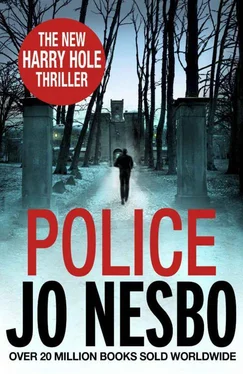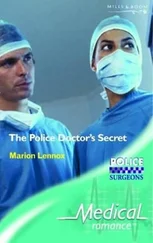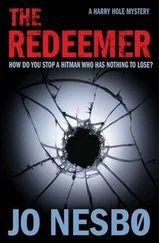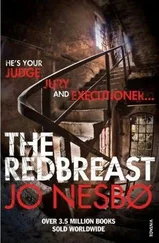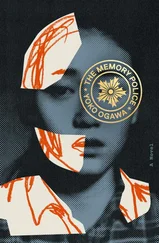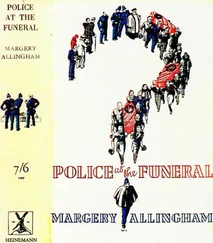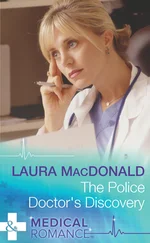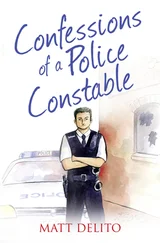Jo Nesbo - Police
Здесь есть возможность читать онлайн «Jo Nesbo - Police» весь текст электронной книги совершенно бесплатно (целиком полную версию без сокращений). В некоторых случаях можно слушать аудио, скачать через торрент в формате fb2 и присутствует краткое содержание. Год выпуска: 2013, Издательство: Random House, Жанр: Полицейский детектив, на английском языке. Описание произведения, (предисловие) а так же отзывы посетителей доступны на портале библиотеки ЛибКат.
- Название:Police
- Автор:
- Издательство:Random House
- Жанр:
- Год:2013
- ISBN:нет данных
- Рейтинг книги:4 / 5. Голосов: 1
-
Избранное:Добавить в избранное
- Отзывы:
-
Ваша оценка:
- 80
- 1
- 2
- 3
- 4
- 5
Police: краткое содержание, описание и аннотация
Предлагаем к чтению аннотацию, описание, краткое содержание или предисловие (зависит от того, что написал сам автор книги «Police»). Если вы не нашли необходимую информацию о книге — напишите в комментариях, мы постараемся отыскать её.
Police — читать онлайн бесплатно полную книгу (весь текст) целиком
Ниже представлен текст книги, разбитый по страницам. Система сохранения места последней прочитанной страницы, позволяет с удобством читать онлайн бесплатно книгу «Police», без необходимости каждый раз заново искать на чём Вы остановились. Поставьте закладку, и сможете в любой момент перейти на страницу, на которой закончили чтение.
Интервал:
Закладка:
Jo Nesbo
Police
It was asleep in there, behind the door.
The inside of the corner cupboard smelt of old wood, powder residue and gun oil. When the sun shone through the window into the room, a strip of light shaped like an hourglass travelled from the keyhole into the cupboard and, if the sun was at precisely the right angle, there would be a matt gleam to the gun lying on the middle of the shelf.
It was a Russian Odessa, a copy of the better-known Stechkin.
The ugly automatic pistol had had a peripatetic existence, travelling with the Cossacks in Lithuania to Siberia, moving between the various Urka headquarters in southern Siberia, becoming the property of an ataman, a Cossack leader, who had been killed, Odessa in hand, by the police, before ending up in the Nizhny Tagil home of an arms-collecting prison director. Finally, the weapon was brought to Norway by Rudolf Asayev, alias Dubai, who, before he disappeared, had monopolised the narcotics market in Oslo with the heroin-like opioid violin. Oslo, the very town where the gun now found itself, in Holmenkollveien, to be precise, in Rakel Fauke’s house. The Odessa had a magazine that could hold twenty rounds of Makarov, 9x18mm calibre, and could fire single shots and salvos. There were twelve bullets left in the magazine.
Three of them had been fired at Kosovo Albanians, rival dope pushers. Only one of the bullets had bitten into flesh.
The next two had killed Gusto Hanssen, a young thief and drug dealer who had pocketed Asayev’s money and dope.
The gun still smelt of the last three shots, which had hit the head and chest of the ex-police officer Harry Hole during his investigation into the above-mentioned murder of Gusto Hanssen. And the crime scene had been the same: Hausmanns gate 92.
The police still hadn’t solved the Hanssen case, and the eighteen-year-old boy who had initially been arrested had been released. Mostly because they hadn’t been able to find, or link him to, any murder weapon. The boy’s name was Oleg Fauke and he woke every night staring into the darkness and hearing the shots. Not those that had killed Gusto, but the others. The ones he had fired at the policeman who had been a father to him when he was growing up. Who he had once dreamt would marry his mother, Rakel. Harry Hole. Oleg’s eyes burned into the night, and he thought of the gun in the distant corner cupboard, hoping that he would never see it again. That no one would see it again. That it would sleep until eternity.
He was asleep in there, behind the door.
The guarded hospital room smelt of medicine and paint. The monitor beside him registered his heartbeats.
Isabelle Skøyen, the Councillor for Social Affairs at Oslo City Hall, and Mikael Bellman, the newly appointed Chief of Police, hoped they would never see him again.
That no one would see him again.
That he would sleep until eternity.
PART ONE
1
It had been a long, warm September day. The light transformed Oslo Fjord into molten silver and made the low mountain ridges, which already bore the first tinges of autumn, glow. It was one of those days that make Oslo natives swear they will never, ever move. The sun was sinking behind Ullern Ridge and the last rays swept across the countryside, across the squat, sober blocks of flats, a testimony to Oslo’s modest origins, across lavish penthouses with terraces that spoke of the oil adventure that had made the country one of the richest in the world, across the junkies at the top of Stensparken and into the well-organised little town where there were more overdoses than in European cities eight times larger. Across gardens where trampolines were surrounded by netting and no more than three children jumped at a time, as recommended by national guidelines. And across the ridges and the forest circling half of what is known as the Oslo Cauldron. The sun did not want to relinquish the town; it stretched out its fingers, like a prolonged farewell through a train window.
The day had begun with cold, clear air and sharp beams of light, like lamps in an operating theatre. Later the temperature had risen, the sky had gone a deeper blue and the air possessed that pleasant physical feel which made September the most wonderful month in the year. And as dusk came, tentative and gentle, the air in the residential quarter on the hills towards Lake Maridal smelt of apples and warm spruce trees.
Erlend Vennesla was approaching the top of the final hill. He could feel the lactic acid now but concentrated on getting the correct vertical thrust on the click-in pedals, with his knees pointing slightly inwards. Because it was important to have the right technique. Especially when you were tired and your brain was telling you to change position so that the onus was on less tired, though less effective, muscles. He could feel how the rigid cycle frame absorbed and used every watt he pedalled into it, how he accelerated when he switched down a gear and stood up, trying to keep the same rhythm, about ninety revolutions a minute. He checked his heart rate monitor. One hundred and sixty-eight. He pointed his headlamp at the satnav he had attached to the handlebars. It had a detailed map of Oslo and its surrounds. The bike and the accessories had cost him more than, strictly speaking, a recently retired detective should spend. But it was important to stay in shape now that life offered different challenges.
Fewer challenges, if he was honest.
The lactic acid was burning in his thighs and calves now. Painful but also a wonderful promise of what was to come. An endorphin fest. Tender muscles. Good conscience. A beer with his wife on their balcony if the temperature didn’t plummet after sunset.
And suddenly he was up. The road levelled out, and Lake Maridal was in front of him. He slowed down. He was out of the town. It was absurd, in fact, that after fifteen minutes’ hard cycling from the centre of a European capital city you were surrounded by farms, fields and dense forest with paths disappearing into the dusk. The sweat was making his scalp itch beneath the charcoal-grey Bell helmet — which alone had cost the same as the bike he had bought as a sixth-birthday present for his granddaughter, Line Marie. But he kept the helmet on. Most deaths among cyclists were caused by head injuries.
He looked at his monitor. A hundred and seventy-five. A hundred and seventy-two. A welcome little gust of wind carried the sound of distant cheering up from the town. It must have been from Ullevål Stadium — there was an important international match this evening. Slovakia or Slovenia. Erlend Vennesla imagined for a few seconds that they had been applauding for him. It was a while since anyone had done that. The last time would have been the farewell ceremony at Kripos up at Bryn. Layer cake, speech by the boss, Mikael Bellman, who since then had continued his steady rise to take the top police job. And Erlend had received the applause, met their eyes, thanked them and even felt his throat constrict as he was about to deliver his simple, brief speech. Simple, sticking to the facts, as was now the tradition at Kripos. He’d had his ups and downs as a detective, but he had avoided major blunders. At least as far as he knew. Of course you were never a hundred per cent sure you had the right answer. With the rapid advances made in DNA technology and a signal from the upper echelons that they would use it to examine isolated cold cases, there was a risk of precisely that. Answers. New answers. Conclusions. As long as they concentrated on unsolved cases, that was fine, but Erlend didn’t understand why they would waste resources on investigations which had long been filed away.
The darkness had deepened and even in the light from the street lamps he almost cycled past the wooden sign pointing into the forest. But there it was. Exactly as he remembered. He turned off and rode on to the soft forest floor. He slowly followed the path without losing his balance. The cone of light from his headlamp shone ahead, and was halted by the thick wall of spruce trees on either side when he turned his head. Shadows flitted in front of him, startled and hurried, changed shape and dived under cover. It was how he had imagined it when he had put himself in her shoes. Running, fleeing with a torch in her hand, after being locked up and raped over three days.
Читать дальшеИнтервал:
Закладка:
Похожие книги на «Police»
Представляем Вашему вниманию похожие книги на «Police» списком для выбора. Мы отобрали схожую по названию и смыслу литературу в надежде предоставить читателям больше вариантов отыскать новые, интересные, ещё непрочитанные произведения.
Обсуждение, отзывы о книге «Police» и просто собственные мнения читателей. Оставьте ваши комментарии, напишите, что Вы думаете о произведении, его смысле или главных героях. Укажите что конкретно понравилось, а что нет, и почему Вы так считаете.
